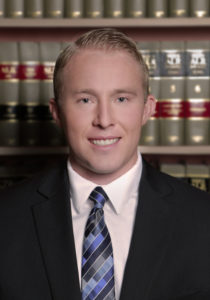
Recent Nevada Case Law May Render Your Business’ Non-Compete Provisions Unenforceable
Allison MacKenzie Attorney, Will Wagner, Explores Non-Compete Provisions
In a July 2016 opinion, Golden Road Motor Inn, Inc. v. Islam (“Golden Road”), the Nevada Supreme Court pronounced a new legal rule regarding the enforceability of overbroad non-compete provisions in Nevada. In light of Golden Road, it would be prudent for any entity conducting business in the State that relies on non-compete provisions to reevaluate the scope of such agreements to ensure they remain enforceable.
A non-compete provision is a contractual clause that prevents an employee from joining a competitor following the termination of employment. Non-compete provisions are important to businesses that use sensitive information such as proprietary client lists or similar trade secrets. These provisions also protect a business’s investment in training and retaining quality employees, while deterring competitors from luring valuable workers.
Non-Compete Provisions can be Overbroad in Timeframe or Geographical Scope Restrictions
Typically, the state’s laws in which the employee works will govern a non-compete provision. Non-compete laws vary widely from state to state as to enforceability and overbreadth. For instance, in California, under most circumstances a non-compete provision is unenforceable and cannot restrict an employee from joining a competitor. The primary exception to this being that when a business is sold, the selling entity and its employees can be restricted from competing. Many other states, including Nevada, allow non-compete provisions generally (both in the normal course of business and while a business is being sold) so long as the scope is reasonable and germane to the organization’s interests.
For the complete article, visit: Northern Nevada Business Weekly.
Will Wagner joined Allison MacKenzie Law Firm in 2016. He is a native Nevadan and University of Nevada, Reno graduate. Will pursued and obtained his law degree from the Sandra Day O’Connor College of Law at Arizona State University where he graduated cum laude. Upon graduating from law school, he served as a law clerk to Justice James W. Hardesty on the Supreme Court of Nevada. He was admitted to practice law in Nevada in 2015, and California in 2016. Will’s areas of legal practice include Business, Real Estate, Employment, Appellate, and Administrative Law.




